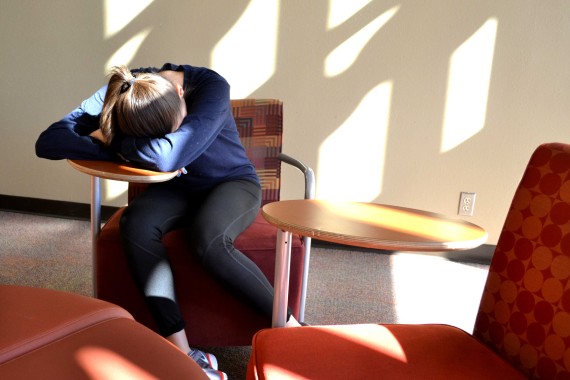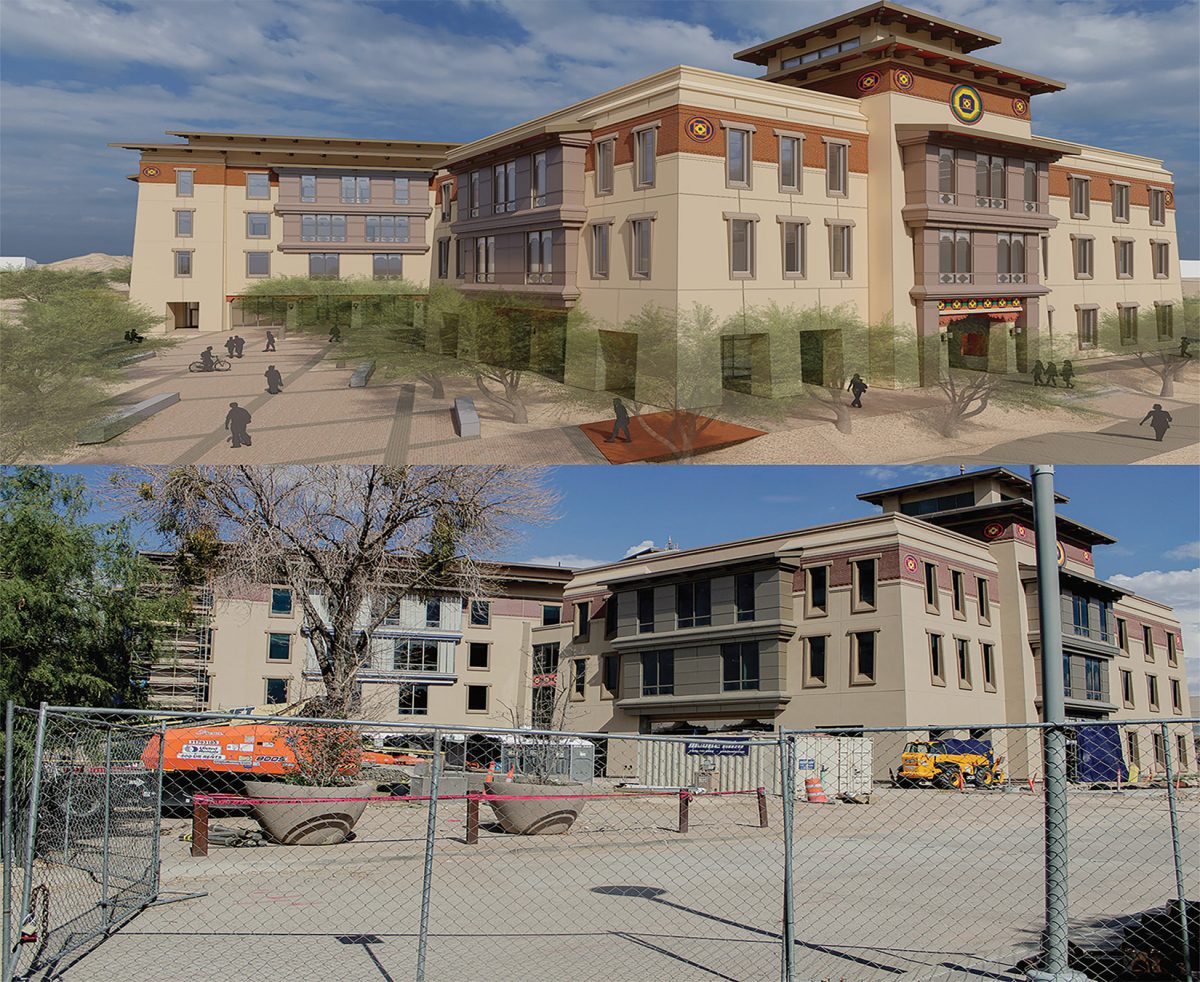Studies have shown that most college students, on average, get less than the recommended hours of sleep. The average student sleeps about five or six hours a night, less than the
eight recommended.
According to a study done by the University of St. Thomas in Minnesota, 70 percent of college students receive less than the recommended eight hours of sleep, choosing to engage in other activities instead.
The study surveyed 1,125 students. Researchers found that 68 percent have difficulty falling asleep due to academic and emotional stress. These statistics disclose that stress has a much more substantial impact on sleep quality than other factors, such as alcohol consumption or late-night electronic usage.
Shocking rates of sleep deprivation occurred in students among the ages of 16 to 25, during a regular school week. The study showed that 20 percent of students pull all-nighters at least once a month and 35 percent stay up past midnight at least once a week.
Some freshmen said they are noticing drastic changes in their sleeping patterns now that they are in college.
Alexandra Dominguez, freshman multimedia journalism major, said she is getting less sleep in order to work on homework and study for her classes.
“It’s such a big change, these couple of weeks have been a little stressful because I’m doing homework I wasn’t expected to do, and I don’t sleep as much,” Dominguez said.
Some students, such as junior psychology major Rudy Ramirez, said they have already gotten used to their irregular schedules and sleeping habits.
“I get out of school and go to work,” Ramirez said. “I work nights, I get three or four hours of sleep, then back to school again. I got used to it.”
Anxiety, depression, physical health problems and academic troubles could begin to develop with sleep deprivation. A lack of sleep can also damage skin and kill a person’s sex drive. It can lead to heart disease, high blood pressure, stroke, diabetes, depression and obesity.
“Sometimes people brag about how little they sleep, but it’s really damaging, they need to be aware of that,” said Edna Reyes-Wilson, a clinical counselor and psychologist at UTEP. “When you don’t sleep, you tend to want to eat more foods with fat content, we tend to eat foods with carbs to get more energy and that can lead to gaining weight.”
While sleeping, everything that is learned throughout the day is being recorded into long-term memory. Reyes-Wilson also said that when a person uses alcohol to help sleep, it can weaken the quality of sleep.
“The quality of the sleep will not help consolidate the information you learned throughout the day, not able to repair the wear of the body that is done during the sleep time,” Reyes-Wilson said.
The University Counseling Center will host a workshop from 1:30-3 p.m., Sept. 30 on sleep deprivation.
There will be a depression screening for students from 9 a.m.- 3 p.m., Oct. 8, which will help students determine other disorders that are caused by sleep deprivation.
Both workshops will be free.
For more information, students can visit the University Counseling Center in room 202 Union Building West or call 747-5302.
Kimberly Valle may be reached at [email protected].






